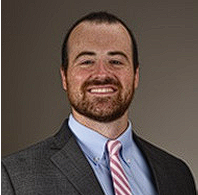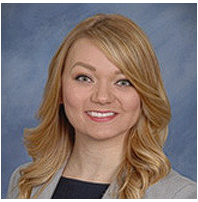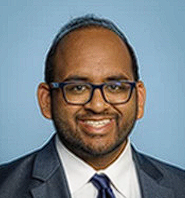VOLUME 37, ISSUE 2
Update on the Activities of the 2025 TSA Resident Scholar Program
The Texas Society of Anesthesiologists (TSA) is very proud to have hosted the inaugural Resident Scholar Program, which provides Texas anesthesiology residents the unique opportunity to complete a month-long, American Board of Anesthesiology (ABA) approved, health policy research rotation. Resident Scholars (CA-1, CA-2, or CA-3) work closely with the TSA Governmental Affairs team in Austin, Texas to advocate on behalf of the specialty at the State Capitol for each month of the legislative session: February, March, April, or May. Applications are accepted in the spring the year prior to the legislative session (which occur in odd calendar years) and require the following: Letter of Interest / Curriculum Vitae / Letter of Endorsement or Support from Program Director.
During the rotation, resident scholars gained valuable institutional knowledge about the legislative process by participating in day-to-day advocacy activities such as tracking and identifying relevant legislation, conducting literature reviews, and meeting with legislators and their staff to provide critical clinical perspectives. Each resident participated in Texas Medical Association (TMA) First Tuesday events, attended weekly organizational meetings, and conducted an individual project. All resident scholars received a stipend to assist with expenses while residing in Austin

Andrea Hernandez, M.D.
CA-3 University of Texas
Andrea Hernandez, M.D. – Dr. Hernandez started off in February 2025 by attending the Texas Public Policy Summit. With a background in health policy and her experience as a graduate from the Joint Admission Medical Program (JAMP), Dr. Hernandez gathered information that contributed towards supporting a bill to establish a rural version of JAMP [SB 2695 – Rural Admission Medical Program]. Dr. Hernandez also led a session for the TSA Advocacy Bootcamp Webinars and helped plan the TSA Days at the Capitol Event by coordinating and leading meetings with various legislators. The annually organized event brings anesthesiologists from all over Texas to the State Capitol to meet with legislators and discuss legislative issues. Dr. Hernandez created a one-pager (easy to read, bullet pointed summaries of important issues) on rural maternal health and obstetric anesthesia care and was a panel speaker briefing our TSA Days at the Capitol attendees on the issue. This document was handed out at the TSA Days at the Capitol and was used as reference in over 89 meetings with legislators and their staff.
Dr. Hernandez shares that she “truly enjoyed this rotation. The TSA Resident Scholar Rotation creates a unique opportunity for residents to participate and learn about advocacy. As someone who has a passion for policy and medicine, it was a privilege to spend a month focusing on the intersectionality between the two. I genuinely believe policy is the most effective way to create lasting change and this rotation encouraged me to further pursue my passion for policy and seek out opportunities in my future endeavors.
Connor Kilpatrick, M.D. – Dr. Kilpatrick continued the TSA Scholars program in March 2025. He researched vertical integration in healthcare (the disturbing process by which an insurance company owns or controls all components of healthcare delivery including clinicians and pharmacy) and developed educational materials. He also participated in important legislative meetings covering TSA legislative priorities. This included working with Representative Hubert Vo on a bill he authored related to the American Society of Anesthesiologists physical status modifiers and anesthesia billing. Dr. Kilpatrick noted, “I gained a deeper understanding of how organized medicine works to protect patient safety and advance our specialty. I had the
opportunity to meet with multiple state representatives and senators during the legislative session and even testified [HB 923 – Texas Medical Disclosure Panel Bill] before a committee—an experience that reinforced the importance of physician engagement in the policymaking process. I saw firsthand how physician leaders and policy teams work to keep critical issues like patient safety, scope of practice, and fair reimbursement front and center in state-level discussions.

Connor Kilpatrick, M.D.
CA-3 University of Texas McGovern-Houston

Shannon Paquette, M.D.
CA-3 UT Southwestern Medical Center-Dallas
Shannon Paquette, M.D. – CA-2 UT Southwestern Medical Center Dallas – Dr. Paquette carried strongly into April 2024. She currently serves as Chair of the TSA Resident Component and worked proactively with the Governmental Affairs Committee team by creating one-pagers, assembling and researching data that supported or refuted certain bills and subsequent
testimonies, and met regularly with legislators’ office staff. Alongside developing strong relationships with key staffers, Dr. Paquette created a new one-pager on the education differences between nurse anesthetists and anesthesiologists, and created a one-pager tackling the main questions/ concerns that were discussed during a key Public Health hearing. She was
additionally able to testify in 3 separate hearings. Dr. Paquette shares that, “Serving as a TSA Resident Scholar was an honor and a truly formative experience for me. Under the guidance of TSA and TMA lobbyists, I gained critical understanding of the dynamics in the state legislature and how to effectively navigate conversations with legislators and staff. I have an even
greater appreciation for our leaders in the TSA and the significant effort they put forth to engage in our civic duty as physicians and advocate both for patients and our specialty. I am grateful for the mentorship I received during my month in Austin and intend to apply the lessons I have learned to advocacy work throughout my career.
Amit Aggarwal, D.O. – CA-3 University of Texas Medical Branch Galveston – Dr. Aggarwal was the final TSA Scholar of this legislative session and served in May of 2025. His duties included researching Medicaid dental reimbursement differences between dentists and anesthesiologists, creating a one-pager opposing a bill that would not require state-mandated benefits to be added to employer’s insurance plans, and redesigning the one-pagers typically used for TSA Days at the Capitol. Dr. Aggarwal also addressed the Case Western Reserve University Anesthesiologist Assistant (AA) school with the Governmental Affairs team, highlighting the importance of Certified AA’s to the anesthesia care team model. He also met with state representatives and their office staff, further strengthening relationships with the staff. Dr. Aggarwal finished the program by compiling the May GAC Newsletter, highlighting all of the important bills / policies that passed through this legislative session. Dr. Aggarwal states, “This program is an outstanding addition to residency training, showcasing strong legislation practices and policies that affect anesthesiology as a whole. The conversations with legislators, their staff, and with other entities were crucial in explaining the importance of anesthesiologists for maintaining patient safety and the need to maintain physician led care in Texas. This month in Austin was an amazing experience and I am sincerely appreciative of the entire TSA team for making this opportunity a reality.

Amit Aggarwal, D.O.
CA-3 University of Texas Medical Branch-Galveston

